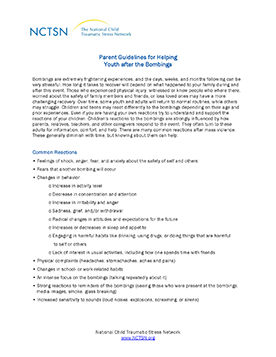
Parent Guidelines for Helping Youth After the Bombings
Offers parents guidance on helping their children after a bombing. This fact sheet describes common reactions children may have, how parents can help them, and self-care tips after an event.
The following resources on child trauma were developed by the NCTSN. To find a specific topic or resource, enter keywords in the search box, or filter by resource type, trauma type, language, or audience.

Offers parents guidance on helping their children after a bombing. This fact sheet describes common reactions children may have, how parents can help them, and self-care tips after an event.
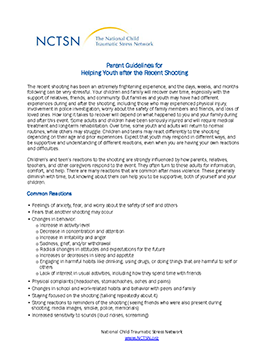
Offers parents guidance on helping their children after a shooting. This fact sheet describes common reactions children may have, how parents can help them, and self-care tips after an event.
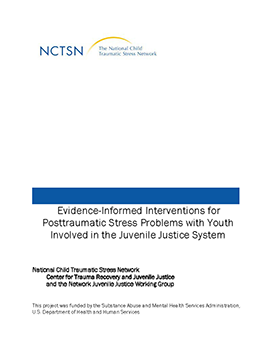
Describes evidence-informed interventions for youth involved in the juvenile justice system.
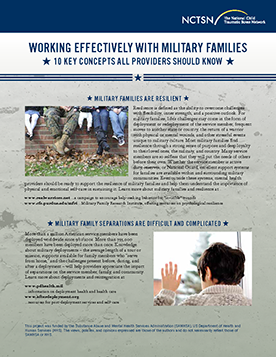
Outlines the top ten things to keep in mind when working with military families. This tip sheet includes information on family separation, stigma about mental health care, access to programs, involving peers and civilian providers and more.
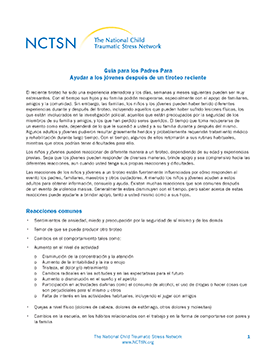
Offers parents guidance on helping their children after a mass violence event. This fact sheet describes common reactions children may have, how you can help them, and taking care of yourself after an event.
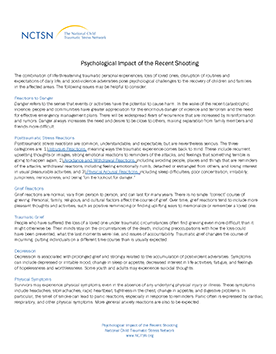
Provides parents and providers with information about the psychological impact of a shooting.
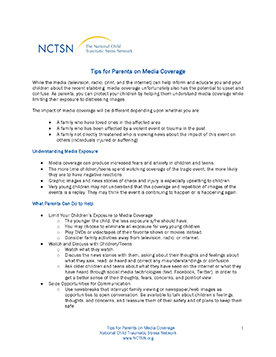
Gives information to parents and caregivers about media coverage following a stabbing. This tip sheet describes what parents can do to help their children, media exposure after events, and talks about what it is like when a family is a part of the story.
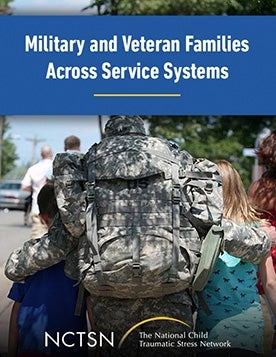
Describes 10 key concepts for providing competent and effective services to military families.
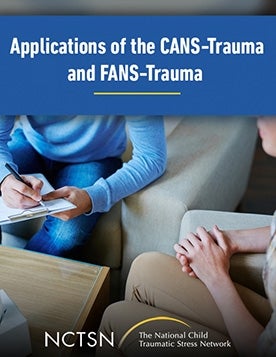
Provides an overview of the CANS-Trauma and FANS-Trauma tools in relation to trauma-informed assessment, treatment and service planning, and caregiver/family engagement. This webinar series shows the use of these assessment strategies.
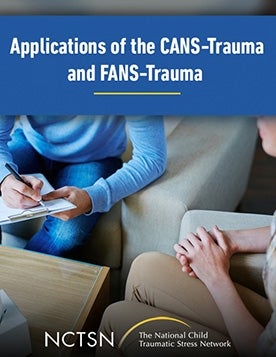
Describes using the FANS-Trauma to assess a family's needs and strengths. This webinar discusses treatment planning upon completing the FANS-Trauma.
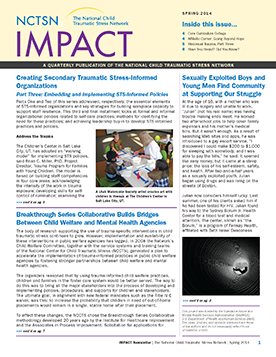
Highlights creating STS-informed organizations, building bridges between child welfare and mental health agencies, and one young man’s journey through sexual exploitation to mentoring others.
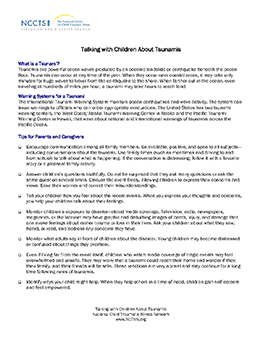
Provides information on how to talk to children about tsunamis. This tip sheet describes what a tsunami is, how warning systems for tsunamis work, and tips for parents and caregivers on how to talk to children about tsunamis.